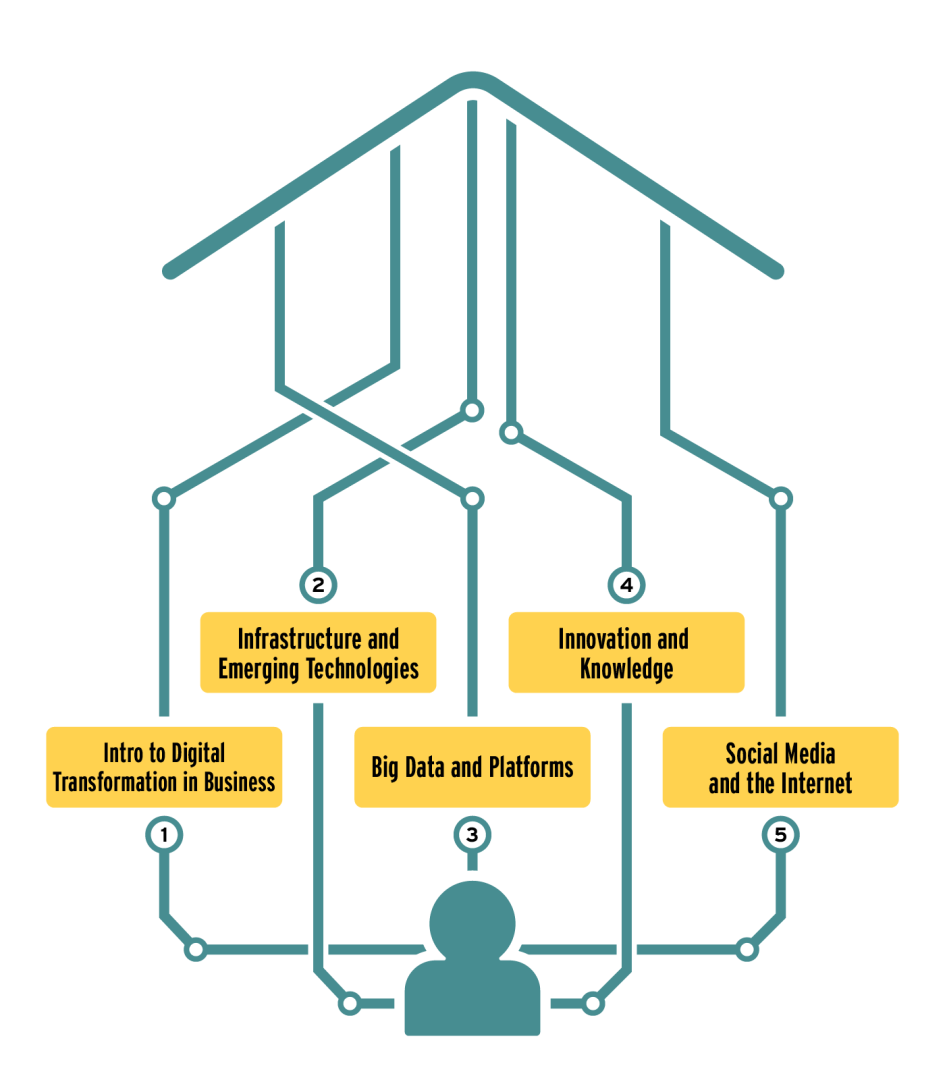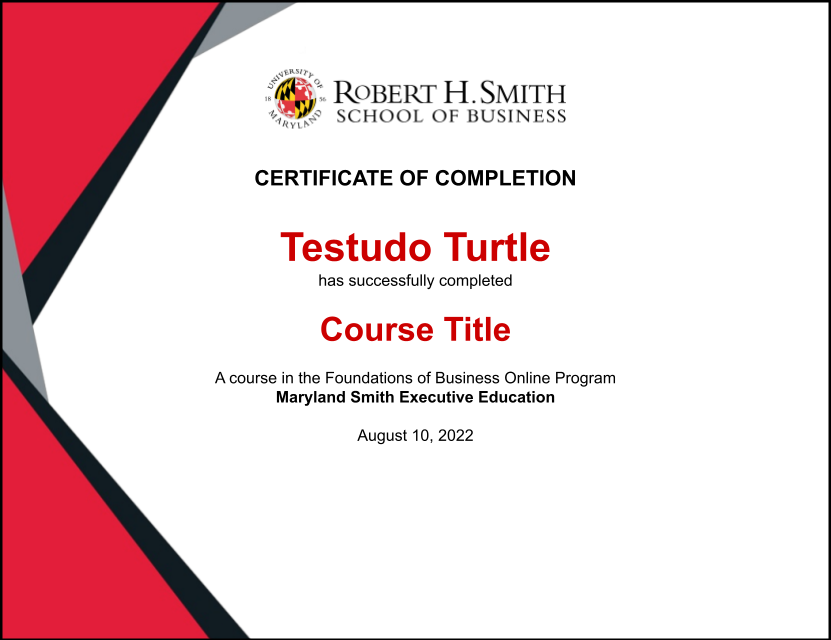Digital Transformation in Business
Foundations of Business Online Program
PROGRAM DETAILS
Start Dates: Enroll Immediately
Duration: 30 hours of content
Format: 100% Online
Tuition: $299
Program Description
In this course, you'll learn how to make key decisions that affect IT in your firm, regardless of whether or not IT is part of your formal responsibility. As a team of faculty, we have carefully crafted each module to give you the information, practice, and application you'll need. In the end, you will have gained knowledge about how to lead the technology function and how to make good technology decisions.
Information technology has enabled the transformation of firms, markets, and industries. Amazon is in the process of transforming the publishing industry and has been highly disruptive for booksellers and increasingly for publishers. The digital camera transformed the process of capturing and sharing images. Kodak invented the digital camera, but how did the managers at Kodak respond to digital photography? What is the smartphone doing to low-end digital camera manufacturers? This course examines how to identify transformational technologies and develop strategies to take advantage of them.

Why take this course?
The course is motivated by the belief that technology is transforming organizations, markets, industries, and our lives. Managers have to spot coming transformations and take steps to see that they become competence enhancing rather than competence destroying. As a result, technology has to be a part of any corporate strategy in the 21st Century. To execute your strategy, you must be able to make good decisions about and manage IT. Beyond transformation, a 21st Century manager will make decisions about information technology no matter where he or she works.
By the end of this course, you will be able to...
- Evaluate executive IT decisions
- Describe how an IT strategy may be better aligned with a business objective
- Evaluate new IT opportunities
- Analyze the forces impacting incumbents and entrants with new technology
- Discuss how to innovate with IT
- Develop IT strategies for the digital firm
- Describe how to provide technology leadership in the organization
Course Topics
You'll get an introduction to IT, strategy, transformation, disruption, and cybersecurity. Even if you don't hold an IT role in your organization, successful leaders have a strategy to navigate these considerations and stay innovative. In fact, if you're new to IT strategy and absorb the content in this module, you could be well-positioned to grow in your current role!
In this module, we will focus on infrastructure and emerging technologies. To implement a successful IT strategy, leaders need to ask the right questions and gather reliable information. Because technology is always evolving, strategies also need to be adaptable to change. You'll see in this module that even companies with well-thought plans face an IT crisis or two.
User-created internet content also generates tremendous amounts of user activity data on Facebook, Google, eBay, and other platforms. All that information created day after day is part of Big Data. When interpreted correctly, Big Data can give organizations powerful insights to inform IT decision-making. In this module, you'll explore how analytics and Artificial Intelligence (AI) can help leaders identify important patterns and make better decisions.
Making big decisions by looking at a bunch of raw data isn't easy. First, you need to extract the important information from the data and then turn that information into knowledge that can be shared through knowledge management systems. This process is delicate and hinges on factors like timeliness, accuracy, and interpretation. It's a process that innovators like Uber, Google, and Amazon excel at.
Cyberbullying on a personal level and cyberattacks on a global scale are two less appealing consequences of social media use. Nevertheless, maintaining an online presence is an important part of an organization's IT strategy. Social media offers a 2-way communication platform on a global scale. Social media can be an important and effective listening device. Positive or negative, customers will let you know how you're doing in online reviews, and those reviews can directly influence current and future customers -- especially if a review goes #viral. On the bright side, a firm can use those opportunities to respond and to change its practices when appropriate. Social media also gives a firm the ability to see how competitors are reacting to their own challenges. Ultimately, knowing when to broadcast and when to listen is a major challenge for any organization.
Format & Structure
The course is completely self-paced. It will take you approximately 30 hours to complete all five modules. Activities include video lessons, readings, and self-reflection activities. Upon completing this course, you will receive a certificate of completion:

This is an asynchronous, self-paced course. That means that you can work at your own speed. There are review questions after most videos and reading. These questions are ungraded and designed for you to check your understanding of the content before moving on. As this course is quantitative, our goal is to give you as much practice as possible. We typically start by introducing you to concepts that you need to understand, followed by the equations. We then demonstrate very concrete examples of how to solve case-based problems before asking you to try some problems on your own.
Smith Faculty

Hank Lucas, Ph.D.

Ritu Agarwal, Ph.D.

Joe Bailey, Ph.D.

Anand Gopal, Ph.D.